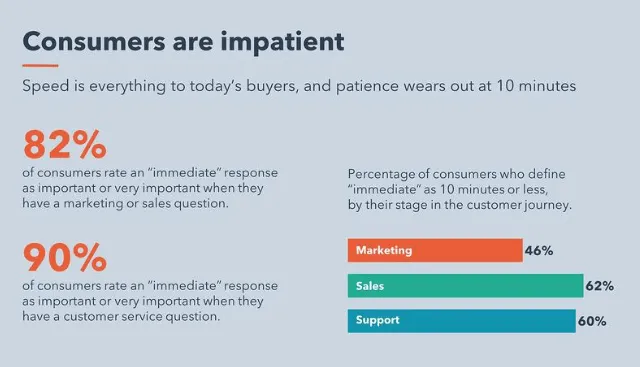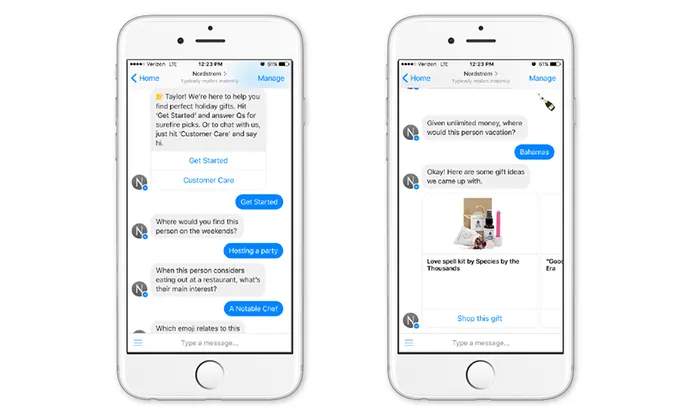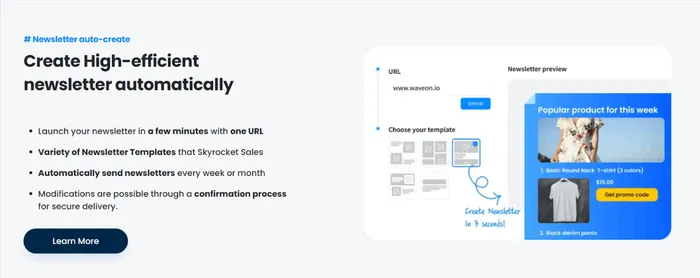Marketing
What is e-commerce marketing automation? Benefits, Strategies, Everything You Need to Know!
Sanchita
1/19/2024
0 min read
TABLE OF CONTENTS

e-commerce marketing is easy, said no one ever! Because it's not. It can get pretty overwhelming with many tasks, especially if you do them manually—ads creation, tracking, content, etc.
So, as your store grows, it becomes impossible to handle all these minute tasks alone. That's where e-commerce automation is changing the game.
In this blog, we will understand what e-commerce marketing automation is and how you can use it.
So, let's understand what e-commerce marketing automation is.
What do you understand by e-commerce marketing automation?
It is a process of automating marketing tasks like scheduling emails, automated downloads, keyword generation, etc. Generally, these tasks are automated with the help of software. Marketing automation allows you to create a repeat, scalable process to automate your marketing tasks. This helps save time and resources and generate more revenue.
Benefits of e-commerce Marketing Automation
E-commerce marketing automation benefits you in several ways. Here are some of them.
1. Less reliance on development and IT team
One of the best benefits of e-commerce marketing automation tools is their ease of use. Even non-technical users can use them pretty well. This means you don't have to keep contacting the IT team for support. You can easily handle most automation workflows yourself.
2. Better Scalability
As your e-commerce grows, so do the marketing campaigns. Managing them manually in the digital world can be overwhelming.
There are so many platforms that you will be targeting, be it Facebook, Instagram, or LinkedIn, All that data can quickly add up and create massive volumes of database. But don't worry. Most e-commerce marketing automation tools have built analytics tools to help you collect data automatically and gather insights.
These tools streamline campaign management, allowing businesses to handle more campaigns efficiently. From scheduling emails to launching targeted promotions, automation ensures precision and scalability in executing marketing initiatives.
3. Better Customer Segmentation
It's no secret. The success of your e-commerce marketing campaigns largely depends on how well you can segment customers.
Segmentation allows businesses to tailor marketing messages and promotions to specific groups of customers based on their demographics, behavior, or preferences. This targeted approach increases the relevance of marketing efforts, improving the chances of engagement and conversion.
An example of custom segmentation would be using automation tools to segment customers based on demographics such as age, gender, location, or income. This allows businesses to tailor marketing messages specifically for each group. For instance, a clothing retailer might promote different products to customers in different age brackets.
4. Consistent Customer Engagement
Automation tools help maintain a unified voice and visual identity across diverse marketing channels. From emails to social media and website content, consistent messaging reinforces the brand's identity and values, fostering a stronger customer connection.
Automated workflows ensure messages are delivered at the right time and frequency, aligning with the overall marketing strategy. This consistency in timing helps build customer expectations and reinforces the brand's reliability.
Example: An e-commerce brand launches a new line of eco-friendly products. Automated product listings on the website, email newsletters, and social media announcements all echo the same environmentally conscious messaging, reinforcing the brand's commitment to sustainability across different channels.
5. Customer Retention

Automated loyalty programs and follow-up sequences contribute to building long-term customer relationships and repeat business.
Using automation to send exclusive offers or early access notifications to loyal customers before a sale or new product launch. This makes customers feel valued and encourages them to stay engaged with the brand, knowing they receive special treatment.
6.Personalization
Targeted and personalized campaigns based on customer behavior can improve customer experience and increase conversion rates. For example, consider dynamic product recommendations.
If customers have previously browsed or purchased a product like shoes, an automated email will suggest a complementary product. Amazon does this very well. By sending complementary products, you increase the likelihood of a relevant purchase.
Another example of personalization is tailored content.
What does that mean?
Let us give you an example. If you go to an Amazon page, your recommendations will differ from someone else's Amazon account.
Amazon tailors recommendations and app content based on user purchase history. This way, users only see relevant things that interest them instead of seeing random content.
Top e-commerce Marketing Automation Strategies That Works For Every Business
1. Create dynamic content for the audience
Imagine you are a 30-year-old male, and you suddenly start receiving product recommendations in the mail for female products. Would you not unsubscribe?
That's why dynamic content is an essential e-commerce automation marketing strategy.
The content you send to your audience must be customized based on their purchase history, preferences, demographic data, etc. This shows your customer that you care about their choices. You can easily develop automation workflows to serve dynamic content to your audience based on the above factors.
2. Use mobile marketing automation
The majority of internet traffic comes from mobile. This makes it necessary to target mobile e-commerce users in marketing automation. But how do you do that?
With tools like Braze. Braze is an award-winning mobile marketing automation tool famous for its user-friendly approach. Braze enhances user engagement with features like user segmentation, multichannel messaging, and real-time analytics.
3. Automatically manage loyalty in e-commerce
Today, customers have hundreds of options for every product they use. This means maintaining customer loyalty towards one brand is extremely hard. But it's not impossible. If customers can get the right deals and good quality products, then there's a high chance they will stay with you.
However, creating brand loyalty manually is impossible today. This is because the internet has several avenues you cannot manually target. That's where automation comes to the scene. Tools like Yotpo are helping e-commerce businesses manage loyalty programs through automation.
It offers a comprehensive loyalty program for e-commerce, featuring personalized rewards, data-driven insights, and omnichannel capabilities. Yotpo also automates engagement, supports diverse rewards, and integrates referral programs, enhancing customer experience and brand loyalty.
4. Automating customer feedback
Feedback is essential to e-commerce marketing, as 93% of people base their decisions on reviews. However, the truth is most people won't leave feedback on your posts unless reminded. This part can be easily automated through automation tools that send a feedback form once the customer completes the purchase.
Qualtrics is one such tool. It equips e-commerce businesses with tools to collect, analyze, and act upon customer feedback. This helps businesses understand customer expectations and enhance the shopping experience.
5. Automate customer interactions through chatbots

A chatbot is a computerized bot that is trained to answer user queries. Users can ask questions related to products or businesses, and it will guide the user.
Now, How does a chatbot help with e-commerce marketing? Imagine this: customers have queries, and no customer support agent is free. At this time, the customer can initiate a chat with a chatbot, which can answer common queries that users will have and keep them busy.
Tools like Drip and Tidio provide user-friendly chatbots for e-commerce marketing automation. These chatbots can be trained with business data and programmed to answer user queries, thus reducing the burden on your customer support team.
6. E-commerce SEO Automation
e-commerce SEO is critical to help Google searchers reach you. It refers to the process of optimizing your online store to rank higher in search engine results. The goal here is to get organic traffic from search engines to your e-commerce website to get higher conversions and sales.
Key aspects of e-commerce SEO include,
Optimizing product descriptions
Using relevant keywords
Ensuring a mobile-friendly website design
Improving site speed.
All these tasks are time-consuming and need a certain amount of expertise. That's where automation tools help. From keyword research and backlinks management to rank tracking, you can automate almost 80% of e-commerce SEO. Here are some ways to do so:
Keyword Research Automation
With tools like SEMrush, and Ahrefs, you can easily search thousands of keywords and analyze search trends, competition, and customer behavior. This ensures your product listings are optimized for the most relevant and high-performing keywords.
Real-time analytics
Tools provide real-time insights into SEO performance metrics, such as website traffic, bounce, and click-through rates. This allows for prompt adjustments and improvements to SEO strategies.
Rank Tracking
Another task that can be automated is rank tracking. Automated tools can monitor your website's position on search engines for target keywords. Thus, helping you gauge the effectiveness of your SEO efforts over time.
Automated Outreach
Streamline the process of building high-quality backlinks through automated outreach campaigns. Identify potential link-building opportunities and manage outreach efforts to enhance your website's authority in search engine algorithms.
E-commerce newsletter automation
The majority of e-commerce stores run profitable e-commerce newsletters. But sending thousands of emails each day seems impossible when done manually. That's where newsletter automation comes into the scene..

Tools like Waveon allow e-commerce businesses to automate e-commerce newsletters. With ready-made templates, you can instantly start building newsletters and grow them exponentially. Best of all, Waveon integrates with Google Analytics and Facebook Pixel with IDs, making it easier to track conversions.
The Future of E-Commerce Marketing Automation
1. Subscription models will rise more
In the past few years, subscriptions have risen in popularity, offering both customer choice and a steady revenue stream to businesses. As per research by McKinsey & Company, over 15% of online buyers have signed up for one or more subscription services. The main benefit of the subscription model is that it allows the collection of valuable first-party data for trend spotting and product testing.
2. Rise of social commerce
The rise of e-commerce buying through social media platforms like Instagram and TikTok has given birth to social commerce. According to Statista, the worldwide revenue of social commerce reached 724 billion US dollars in 2022 ! Another research highlighted that over 50% of the audience is open to purchasing products via social media. This will bring a huge shift in e-commerce marketing automation as businesses must focus more on optimizing buying through social media platforms.
Conclusion
Even though we don't see it, the e-commerce industry breathes automation. All those Amazon product recommendation emails you get in your inbox are not sent by someone sitting behind a computer for 24 hours. They are automated. So, it's time for you to shift to marketing automation too!
Delegate those tedious tasks to software; they will do an excellent job. Not only does the software do these repetitive jobs 24 hours, but they also do it well, without any errors. It leads to improved conversion rates and customer acquisition and keeps you at the top of the game.













